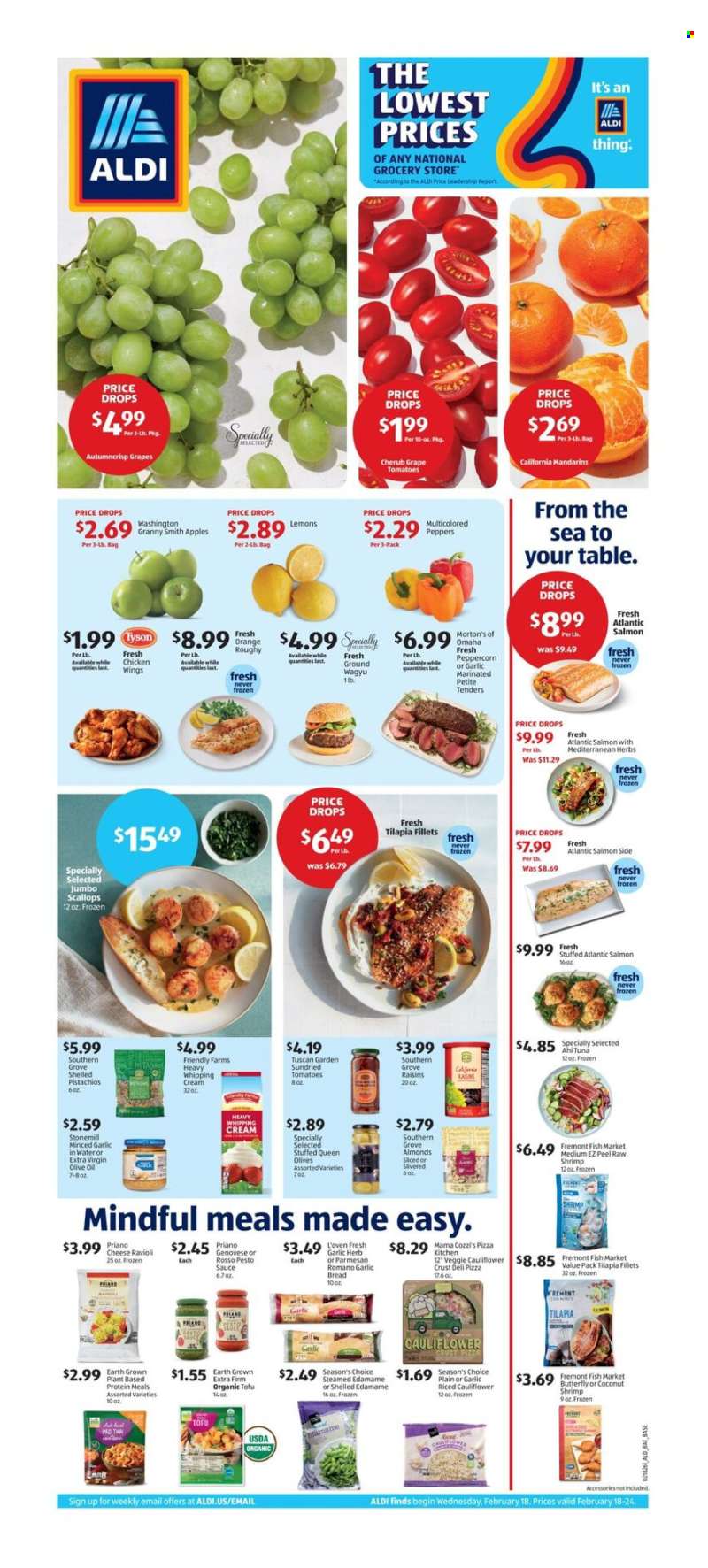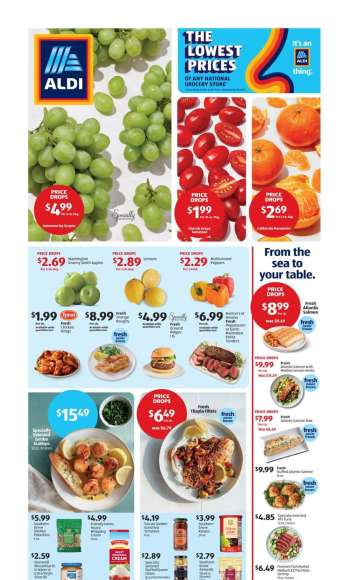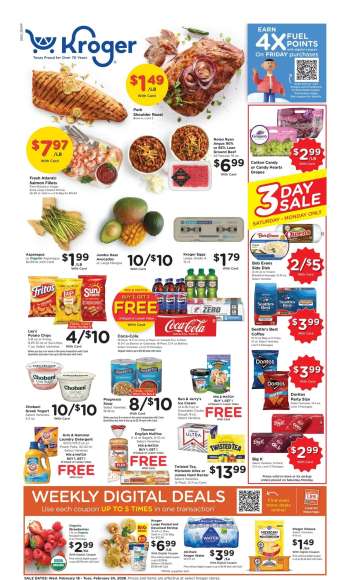
Ads may not be valid in all local stores
ALDI - weekly ads
ALDI Ad - Weekly Ad - video
Products in ALDI flyers
| Ad | Page | Products | Description | Price |
|---|---|---|---|---|

02/18/2026 - 02/24/2026 |
1 | apples | $2.69 | |
| beef meat | $4.99 | |||
| bread | $3.49 | |||
| extra virgin olive oil | $2.59 | |||
| fish fillets | $6.49 | |||
| 2 | bedding | $14.99 | ||
| blanket | $4.99 | |||
| candle | $4.99 | |||
| comforter | $29.99 | |||
| leggings | $4.99 | |||

02/25/2026 - 03/03/2026 |
1 | blender | $24.99 | |
| butter | $3.99 | |||
| candle | $3.49 | |||
| cutting board | $4.99 | |||
| kitchen mat | $6.99 | |||
| 2 | corned beef | $6.49 | ||
| rug | $24.99 | |||
| trampoline | $49.99 | |||
| Cattlemen's Ranch | $3.49 | |||
| beef brisket | $3.49 | |||

02/18/2026 - 02/24/2026 |
1 | blanket | $4.99 | |
| candle | $4.99 | |||
| leggings | $4.99 | |||
| vacuum cleaner | $79.99 | |||
| wreath | $19.99 | |||
| 2 | bedding | $14.99 | ||
| beef meat | $4.99 | |||
| blanket | $19.99 | |||
| candle | $19.99 | |||
| comforter | $29.99 |
Latest flyers
Retailers - grocery

















